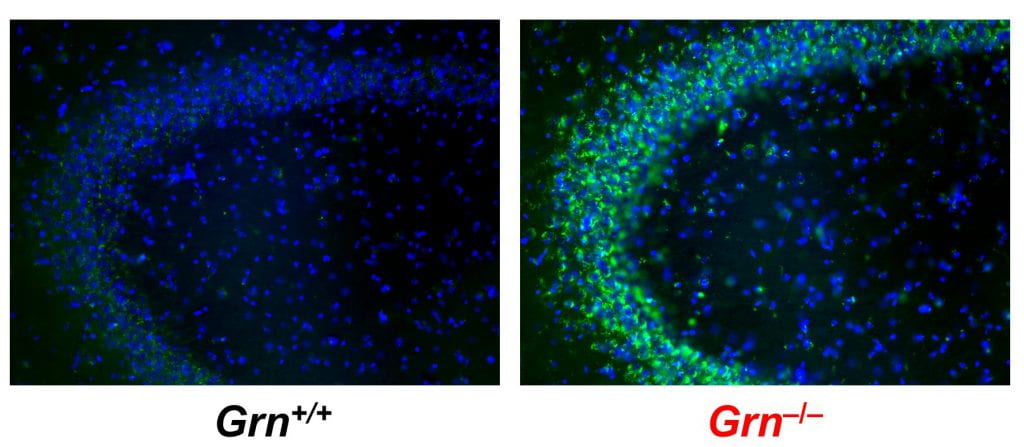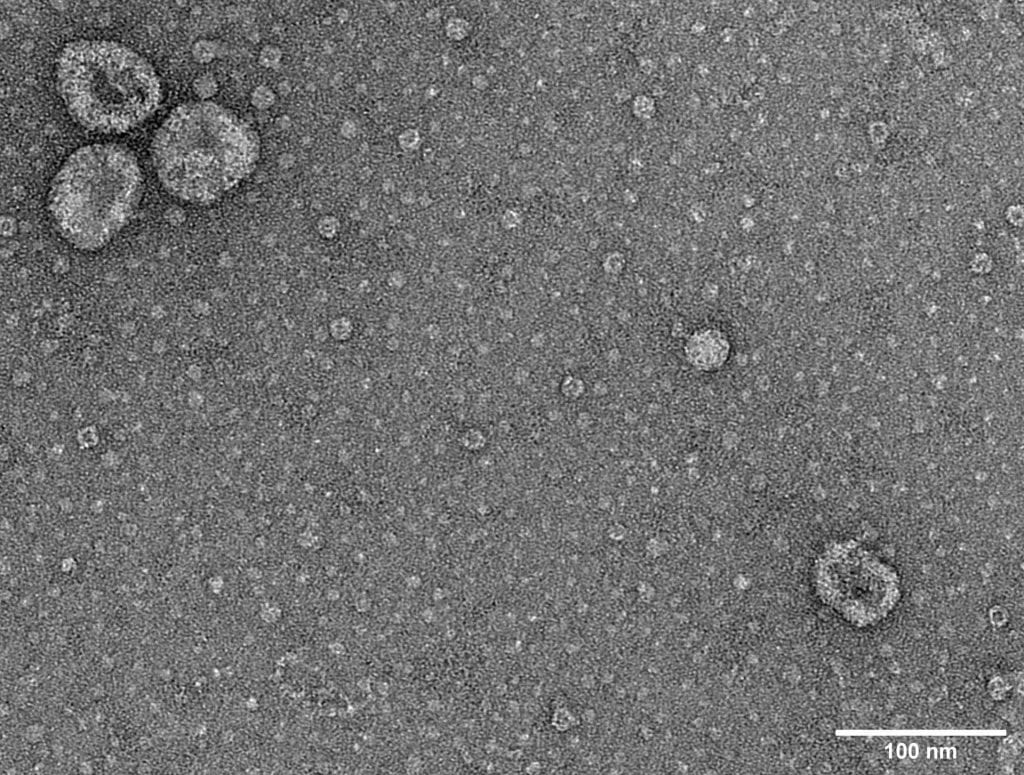Endolysosomal Dysfunction in Frontotemporal Dementia and Alzheimer’s Disease
A major focus of the lab is understanding the role of endolysosomal dysfunction in neurodegeneration. The endolysosomal system is a pathway of cellular trafficking in which endosomal cargo may be either trafficked to the lysosome for degradation or secreted from the cell. We are investigating how endolysosomal dysfunction is involved in the pathogenesis of Frontotemporal Dementia and Alzheimer’s disease. Current areas of interest include the lysosomal protein progranulin and the production of extracellular vesicles in the brain.
Frontotemporal Dementia
Frontotemporal dementia or FTD refers to a group of neurodegenerative disorders in which the frontal and temporal lobes of the brain degenerate. FTD is a leading cause of dementia after Alzheimers disease, and is the most common cause of dementia in people under 60. The various FTD disorders affect personality, movement, and language.
Alzheimer’s Disease
Alzheimer’s disease is a neurodegenerative disorder that is the most common cause of dementia. Alzheimer’s disease causes memory loss and also changes mood and behavior. Alzheimer’s disease is characterized by brain pathology that includes plaques containing amyloid-β and neurofibrillary tangles containing tau.
Progranulin
Progranulin is a major focus of our current research. Mutations in the progranulin gene are one of the most common causes of dominantly-inherited FTD. Most disease-causing progranulin mutations reduce the amount of functional progranulin protein in the body. Progranulin is critical for maintaining lysosomal function, as people with mutations on both progranulin alleles develop the lysosomal storage disorder Neuronal Ceroid Lipofuscinosis. We are investigating how progranulin insufficiency disrupts lysosomes and the broader endolysosomal system, and whether endolysosomal dysfunction is a key mechanism that drives FTD pathogenesis.

Accumulation of autofluorescent lysosomal storage material (green) in the brain of progranulin-deficient mice.
Extracellular Vesicles
Extracellular vesicles (EVs) are found throughout the body and originate through multiple pathways such as budding from cell membranes (microvesicles) or secretion from the endolysosomal pathway (exosomes). We have recently found elevated levels of EVs in brains of patients with FTD due to progranulin mutations and in progranulin-deficient mice. We are investigating how abnormal extracellular vesicle secretion may contribute to neurodegenerative disease and aging.

Electron micrograph of extracellular vesicles isolated from brain tissue.
